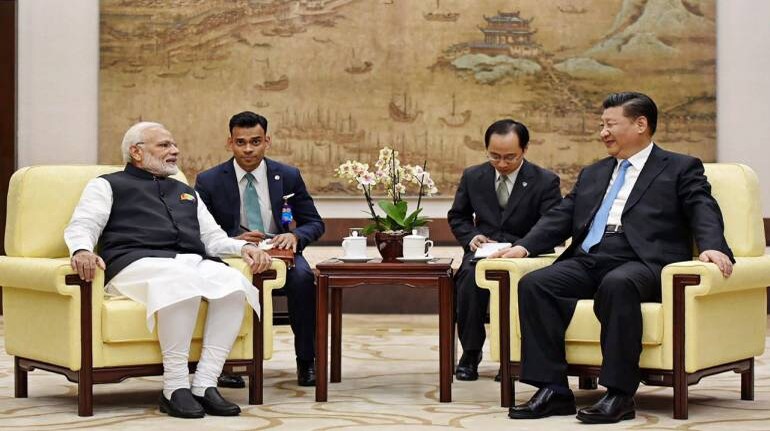
The informal Xi-Modi summit at Mamallapuram near Chennai is a crucial confidence-building measure between India and China. A lot has changed since the Wuhan meeting in April 2018. Despite Foreign Minister S Jaishankar assuring the policy community in the United States that India-China ties are stable and mature, many developments, including on Kashmir and Quad, have further strained bilateral ties. Being powerful leaders, however, both Chinese President Xi Jinping and Prime Minister Narendra Modi have the potential to re-shape geopolitical thinking as well as the course of Asian economic architecture.
In New Delhi, the India-China narrative in the last few years has been taken over by strategic hawks. It is not that a powerful China is not a strategic challenge. It is also clear that the China-Pakistan nexus has kept India occupied in the region and restrained New Delhi’s options in South and Central Asia. Besides, the 1962 war still casts a shadow on bilateral ties. Still, the India-China story could be much bigger than perceived through limited strategic and balance of power considerations.
In the Asian and global scenario, earlier China and lately India have started being noticed not only because of their militarily and strategic strengths. China became really important due to its double-digit growth for more than three decades. It provided trade and investment opportunities to all major economic players. Similarly, India was always a big country and a democracy. However, the world started noticing India only when it showed that it could also grow at an average seven per cent per year for a sustained period of time.
Relation with China is one of the main foreign policy challenges faced by all major powers, including the United States, European Union and most Asian nations. Depending on their economic and strategic strengths they are trying to deal with Beijing while also participating in China’s growth story. Engaging confidently, the US and Europe are also simultaneously pushing for better market access. Meanwhile, China-Russia bonhomie is a different story altogether.
Economic slowdown and trade tensions with the US have put some pressure on China. However, with an economy five-times the size of India’s, Beijing is still quite relaxed about New Delhi. For Beijing, improvement in trade, investment and connectivity with New Delhi is mutually beneficial. Indian policy makers, however, seem to be uncertain in their responses. Despite a huge current account deficit, India continues to provide its large market for Chinese goods. Still, New Delhi is not confident about Chinese investment in the country. If the Chinese could invest more than $50 billion under Belt and Road Initiative (BRI) projects in Pakistan, they can also easily invest hundreds of billions in Indian infrastructure, including railway modernisation and ports. However, strategic worries in India have overshadowed economic considerations.
Modi-Xi Summit: Pakistan’s shadow will loom large over Mamallapuram
China is also moving up the value chain. A confident India must be ready to receive Chinese investment. Many industries related to textiles, shoes, toys, etc. are already moving into Bangladesh, Cambodia and Vietnam. The US-China trade war is also pushing many manufactures towards Southeast Asia. Still, very few companies are looking towards India. With its comparative advantage in certain sectors, Indian IT companies may even participate in technologies viz. 5G, artificial intelligence and robotics, where China is making a serious headway.
When Xi is visiting India, trade ministers of important Asian countries are also meeting in Bangkok to give a final shape to Regional Comprehensive Economic Partnership (RCEP) deal. Although most countries are confident of sealing the deal, India still seems cautious.
One of the main reasons seem to be that India has more than $100 billion trade deficit with RCEP countries. The RSS Chief Mohan Bhagwat and Swadeshi Jagaran Manch are already pushing the government against the RCEP. The Modi government has anyway been very cautious about trade deals and investment agreements. Hardly any new trade agreement has been signed by India in the last five years. A large number of bilateral investment treaties have also been terminated. As India already has trade agreements with the ASEAN, South Korea and Japan, the real worry could be China. So any improvement in India’s China policy will also determine India’s fate in the pan-Asian trade deal.
Modi-Xi Summit: Informal dialogues cannot resolve structural problems
Despite optics, the Chennai summit may end with very little concrete outcome. However, a confident Modi can always spring a surprise in terms of RCEP, 5G, plan for joint development projects and perhaps even connectivity.
(This is the fourth article in a multi-part series analysing India-China ties in the background of the Modi-Xi informal summit.)
Gulshan Sachdeva is Jean Monnet Chair at the School of International Studies, Jawaharlal Nehru University and Editor-in-Chief International Studies. Views are personal.
Discover the latest business news, Sensex, and Nifty updates. Obtain Personal Finance insights, tax queries, and expert opinions on Moneycontrol or download the Moneycontrol App to stay updated!